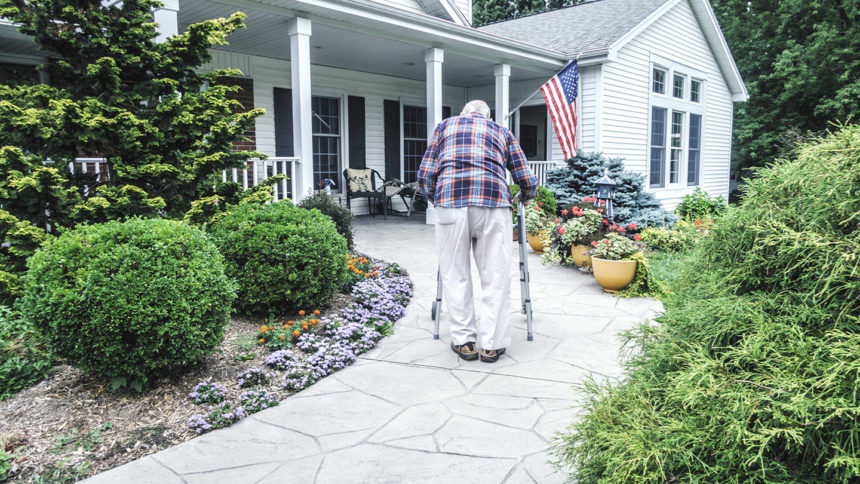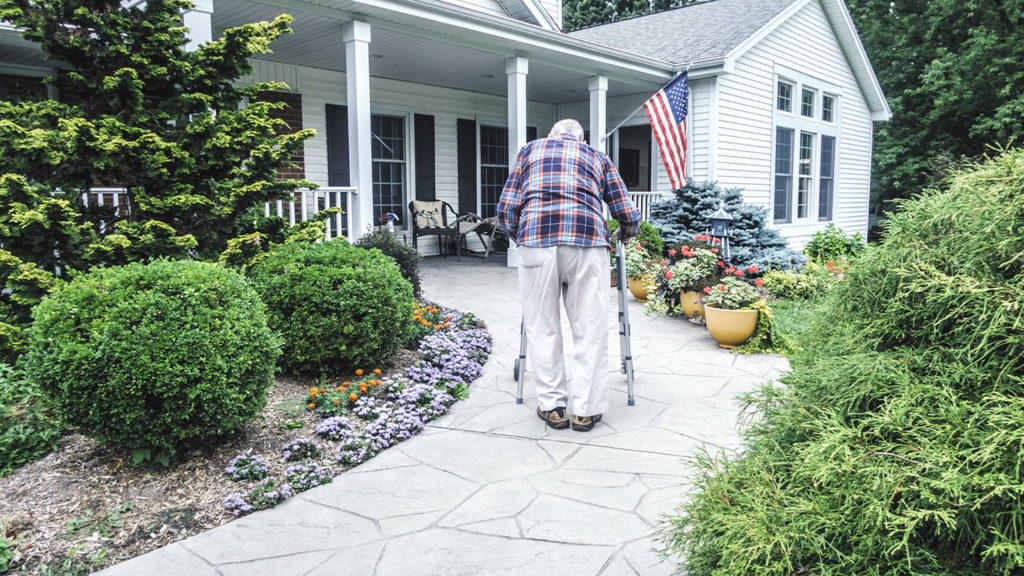

Senior living provider groups have joined a broad range of other stakeholder groups in urging inclusion of a veterans pilot program into a legislative package under consideration by lawmakers.
The American Senior Housing Association, Argentum, LeadingAge and CEAL@UNC joined veterans service organizations, advocates of people living with Alzheimer’s disease, the AARP and rural healthcare providers in sending a letter to congressional leadership and Senate Veterans’ Affairs Committee members urging inclusion of S 495 / HR 1815, the Expanding Veterans’ Options for Long Term Care Act, in a veterans’ package under development by lawmakers.
The act proposes a three-year pilot program to assess the effectiveness of providing eligible veterans the option to live in an assisted living community. Supporters called the option an “economically sound and sensible” approach to veterans’ care.
“Assisted living aims to offer the best of personal and supportive care services with a team of professionals in a home environment where individuals can continue to live a meaningful life that provides compassionate care, promotes social engagement, ensures balanced nutrition and overall well-being,” the letter dated Monday reads. “The Department of Veterans Affairs has acknowledged the challenges relative to the aging veteran population and the need and value of rebalancing its long-term care programs. This legislation gives the department the authority to do that by offering additional options.”
Congress typically passes a package of veterans bills each session but did not not achieve that goal last year, according to ASHA Vice President of Government Affairs Jeanne McGlynn Delgado. She added there is great interest in Congress in doing something this year, and ASHA is urging grassroots action by inviting its members to join the advocacy effort for the veterans pilot program.
Letter signatories said the pilot program is “carefully defined” to include communities in Veterans Integrated Services Networks that have large veteran populations, in rural areas and in state veterans nursing homes.
“It authorizes the VA to support assisted living programs for aging and disabled veterans who would otherwise require more expensive nursing home care and gives veterans more options for how and where they can get the long-term care they need,” the letter read. “It provides VA the critical flexibility to address the needs of a rapidly growing population of aging or disabled veterans who are not able to live at home and future cost savings will help more veterans receive the assistance they need.”
The bill was reintroduced in 2023 after going nowhere in 2022. A representative from the Department of Veterans Affairs told a House committee last year that the VA supports a pilot program under certain conditions.
The new letter pointed to statistics from a 2020 VA report that noted that the number of veterans eligible for nursing home care will increase 535% over the next 20 years. The letter also noted that costs to the VA for nursing home care alone are not sustainable and that assisted living offers “significant cost savings” for those who don’t require a high level of medical care.
Additional signers included Alzheimer’s Impact Movement, DAV, Iraq and Afghanistan Veterans of America, the National Association of State Veterans Homes, the National Rural Health Association and Paralyzed Veterans of America.


